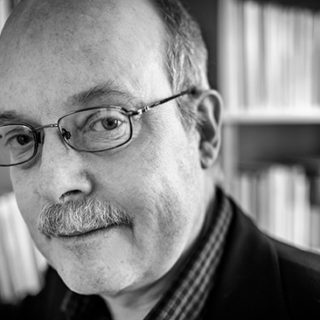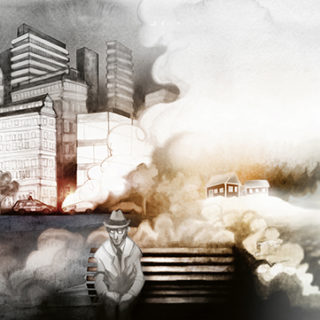Is dying becoming easier?
Do you think about death or dying? Are you worried about what your final moments in life will be like in case your death is not sudden? What if we were ensured a dignified death, regardless of whether it happens at home or in the hospital? Although this is currently not the case for everyone, the development is heading in that direction.
“Everyone dies, so really, everyone who dies an expected death to should receive some form of palliative care”, says Carl Johan Fürst, Professor of Palliative Medicine.
Palliative care – or end-of-life- care – includes respectful treatment, support for the patient’s family, knowledge about pain and other symptom relief, as well as knowledge on how, as a healthcare professional, to conduct a dialogue with patients about what they want their experience to be.
In Sweden, palliative care began expanding in the 1980s with a focus on independent hospices as places where patients could receive good care. Many of the first hospice patients had cancer, as their diseases and symptoms made them suitable for this type of care.
“Many people still think that way”, says Carl Johan Fürst, “but if all you have is a few hospices with space for dozens of cancer patients, what do you do with all the other patients?”
At the Palliative Institute in Lund, Carl Johan Fürst and his colleagues build on the positive experiences of hospice care. They work to integrate palliative knowledge and expertise in today’s healthcare organisations.
“By having a positive experience of the events surrounding the death of a loved one we would not need to fear the healthcare aspect of death.”
“At a modern hospital, such as the University Hospital in Liverpool, there is an incorporated palliative care unit including a consulting team for the entire hospital. This is perhaps the way it should be in hospitals today”, says Carl Johan Fürst.
“The same considerations must be applied to municipal nursing homes, where many elderly and seriously ill are cared for”, continues Carl Johan Fürst. “Although many of them pass away rather quietly, and with good support, they must be able to receive help in case of a problem.”
The idea is that those in need are to receive specialist palliative care from a so-called ASIH team (advanced healthcare at home). Doctors and nurses within ASIH would make house calls and, together with the staff, identify the problems and the support that is needed. Similarly, the ASIH team could provide support to those who choose to receive end-of-life care at home, to their loved ones, and to other home care providers, such as district nurses.
CARL JOHAN FÜRST considers it to be a positive development. More and more people want to be cared for at home and the need for hospice places decreases. Home nursing is currently expanding, through ASIH and in other forms. Central to the Palliative Care Institute is to ensure sufficient knowledge among those who work with dying patients. The focus is currently on providing special training for doctors on how to talk to their patients and deliver bad news about the diagnosis, prognosis and other difficult information. However, according to Carl Johan Fürst, the goal is for palliative care to become a compulsory component of the study programmes in both nursing and medicine.
“If palliative care is included in all places – hospitals, nursing homes, and in the patients’ own homes – support will no longer only be available to people with cancer, but to all patients”, says Carl Johan Fürst.
A future challenge is how to ensure sufficient resources for all nursing and care. Carl Johan Fürst believes that various forms of volunteer assistance will be required to support our healthcare system.
“Volunteers are common in palliative care in many countries, but in Sweden this is not really in our tradition. However, we will need to increase our volunteer efforts also when it comes to end-of-life care. We must somehow include it as a complement, and consider it an asset.”
With a significant increase in at-home care and in the number of volunteers, Carl Johan Fürst hopes that dying, grief and suffering will become a more integrated part of our lives.
“I believe it is healthy to keep death and misery at a distance, but I also think it is healthy to talk about it. The experience we have when our loved ones die may also have a significant impact on our faith in the healthcare system, our own sense of security and the thought of dying. By having a positive experience of the events surrounding the death of a loved one we would not need to fear the healthcare aspect of death.”
Text: Pia Romare
Photo: Peter Frodin
Facts
-
The Palliative Care Institute
-
The Palliative Care Institute is part of Lund University and Region Skåne. Its remit includes research, development and education in both general and specialised palliative care. Its activities are based on the needs of the patients and their loved ones, regardless of diagnosis, age, background or where the patient is cared for.
Read more on here.
-
Palliative care
-
Palliative care specialises in managing pain, nausea and other symptoms, as well as meeting the psychological and spiritual needs of the patient and their loved ones. The care focuses on supporting the patient’s quality of life in the final stages of life. In Sweden, specialist palliative care is performed in special care units, sometimes referred to as hospice, and in the form of advanced medical care in the home (ASIH).









